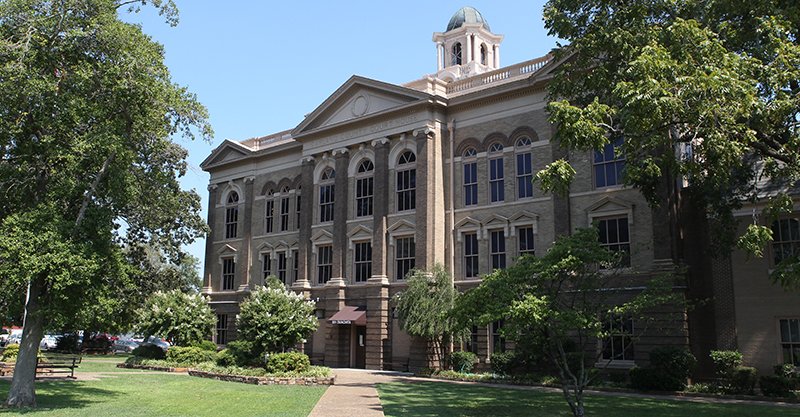The 0.625% countywide sales tax is projected to retire the county's $54.7 million road bond issue by the end of the month, Stephens Inc. said.
The Little Rock investment bank said the February payoff is contingent on December collections. If the tax collected $900,474 or more, the trustee can call bonds scheduled to reach maturity in November, retiring the debt more than a year ahead of the amortization schedule Stephens provided when it underwrote the sale of the bonds in 2016.
The county will receive the payment for December collections later this month.
"We shouldn't have any problem reaching that $900,000," County Judge Darryl Mahoney said Thursday, noting the tax has collected more than $1 million a month on average since collections resumed in July 2017.
"This is the first time we've had a good, definitive answer it's going to pay off at the end of February rather than in March. Initially, when we found out it was going to pay off early it was sometime in April and May, then it moved back to March," he said.
Paying off the bonds by the end of the month would enable four months of extra collections, as state law doesn't allow the levy of a sales and use tax to end until 90 days after the quarter in which the state revenue agency receives the termination of tax certificate.
Paying off the bonds by the end of the first quarter would have allowed the sales tax to sunset at the end of June had voters not narrowly endorsed a five-year extension in the Feb. 8 special election. Per the ballot title voters approved by a 324-vote margin, the sales tax will be collected from July 1 through June 2027, with the proceeds supporting the repair and replacement of existing roads and bridges.
The four months of extra collections are projected to generate more than $4 million. Mahoney said it's unclear how the county will use that money, or if it would have to distribute a per capita share to the four incorporated areas in the county. He said he's waiting for guidance from the state Department of Finance and Administration.
State law requires counties that levy a 0.50% sales tax to share the proceeds of any additional sales tax with its incorporated areas on a per capita basis. The county levies a 0.50% countywide sales tax in support of its general and solid waste funds, but the 0.625% sales tax isn't subject to the population-based distribution.
Per the ballot title voters approved in the June 2016 special election that reauthorized the sales tax, proceeds were pledged to principal and interest payments on the $54.7 million bond issue. The county used the debt to fund its $30 million contribution to the $79 million King Expressway extension that's scheduled to open later this year. The balance funded road improvements in the county and its four incorporated areas.
Roads and bridges or the consolidation of the city and county's 911 call centers the state 911 Board recommended last year are potential uses for the four-month windfall, Mahoney said.
Stephens said if the bond fund has sufficient proceeds by the end of the month, Simmons Bank, the fund's trustee, will notify holders of the outstanding debt that they'll be redeemed in full by April 1.
At the end of last month, $7,970,000 in principal, $93,727 in interest and $4,000 in fees were outstanding. The bond fund held $2,041,463 in collections, $2,391,039 in surplus collections and a debt service reserve of $2,734,750. If December collections of the sales tax are $900,474 or greater, the county will have sufficient funds to retire the outstanding debt.
Stephens said the 2023 payoff date it projected in 2016 was based on zero growth from what the sales tax collected when it was securing more than $41 million in debt that financed the construction of the Garland County Detention Center. But collections have outperformed the zero-growth projection, allowing surplus collections to fund the debt service reserve and the trustee to call bonds before they reach maturity.
The official statement for the October 2016 bond issue required the trustee to make semiannual principal and interest payments in May and November, but Stephens said surplus collections enabled additional payments that were used to call bonds early.
Retiring bonds before they reached maturity lowered the principal that interest was applied to, reducing the total principal and interest Stephens projected for the life of the bonds by more than $500,000. Stephens said if the bond issue is retired by the end of the first quarter, taxpayers will have paid $4,580,000 in interest on the $54,695,000 principal.
